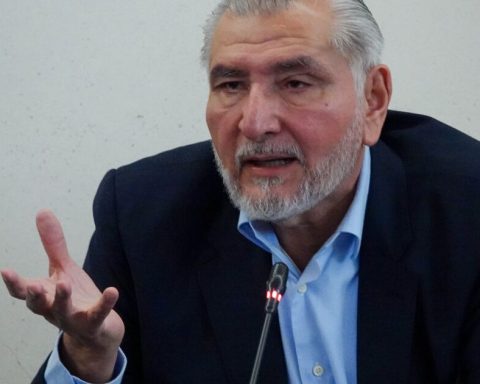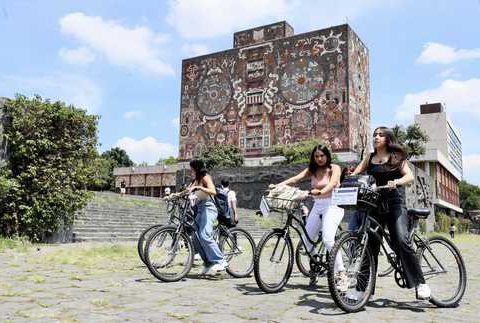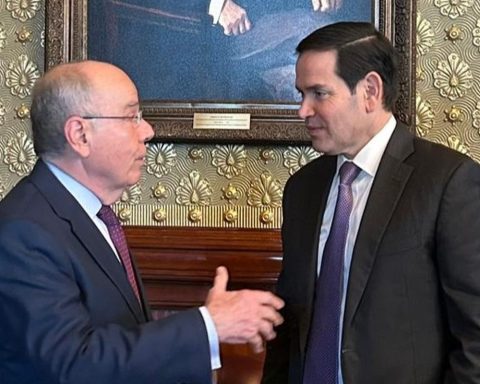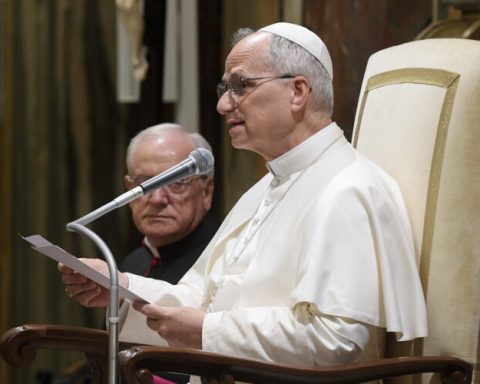Indigenous languages are seen as one more element of culture, of folklore. Not all the time we are dancing or making music. But the tongue yes, the tongue goes through you, when you sleep you dream in a language. That is why it implies a strong change, but if they do not have that dimension and they see it as one more element of folklore that the Ministry of Culture must deal with, we are fried.
Yásnaya Elena Aguilar, Ayuuk linguist and writer.
This year marks the beginning of the much-heralded International Decade of the World’s Indigenous Languages 2022-2023, promoted by UNESCO and launched by the Mexican authorities since it was here that the Declaration of Los Pinos (Chapoltepek) was signed. after the high-level event in 2019 entitled “Building a Decade of Action for Indigenous Languages”.
In accordance with this declaration, the Member States of UNESCO had to go through a Transition period in 2020-21 focused, dictates the document, on the consolidation of necessary resources and a coordination mechanism for the preservation, revitalization and promotion of indigenous languages. The period that runs, from 2022 to 2025, is called Expansion. In it, according to this calendar, a world action plan will land with a financial mechanism in favor of the preservation, revitalization and promotion of the same and the empowerment of their speakers.
However, in our country few or no transverse steps seem to have been taken at the pace set by the Los Pinos Declaration.
According to the 2023 economic package, delivered last Thursday to the Chamber of Deputies, the agency that should have championed this ambitious task, the National Institute of Indigenous Languages (Inali), will receive a budget of 74.8 million pesos. In contrast, the National Institute of Indigenous Peoples (INPI), a non-sectorized entity to which the federal government has expressed its intention to incorporate the Inali, will receive 4,102 million.
Last August, the director of the INPI, Adelfo Regino Montes, announced that the University of Indigenous Languages, one of its star projects based in Milpa Alta —a location for which it has been designated as another centralist project—, will begin operations in March. of 2023.
“I don’t see genuine interest”
In an interview with El Economista, the Ayuuk linguist and writer Yásnaya Elena Aguilar considers that a university in the center of the country “is not doing language policy or language planning. The State puts the money where it has the interest and unfortunately I don’t see any genuine interest. The university is going to have four majors, but without planning. Language planning is a serious thing: you have to do status, corpus and acquisition analyzes if you really want to do something. It is a very specific matter and there are those who know how to do it, but it is not being done. Languages continue to die, the numbers don’t lie, they are there and they are alarming”.
According to a comparison between the 2010 and 2020 Population and Housing Censuses, in a decade the population that speaks indigenous languages in the country for three years or more was reduced from 6.5% to 6.1% within the total national demographics.
“Your big bet, that university, will not cause more speakers of indigenous languages; if anything it should be part of a much larger plan. There is no substantive change, neither language education nor the administration of justice with interpreters is being guaranteed, nor are there interpreters in hospitals,” says the author of Aa: manifestos on linguistic diversity (Almadía and Bookmate, 2020).
It expands that for these reasons, among others, “the State is the main violator of linguistic rights. It is as if I were hanging you and I ask you how I can help you. You would ask me to stop hanging you first. You can’t ask the person who’s hanging you for help, because you don’t trust. So, the first thing that must be done is to eliminate the linguistic violence that the State itself exercises in the educational system, in the health system and in the administration of justice, because they have not ceased and their elimination does not seem to be a priority for the six-year term in absolute. You don’t see any real interest beyond the speech.”
The attention to indigenous languages, he expresses, must be a cross-cutting issue, permeating all administrative and social strata. “Language is not exclusive to the Ministry of Culture and the INPI. Doesn’t the Treasury use a language or does the president not use a language? Language is everywhere and therefore planning must be everywhere”.
Finally, the linguist and writer points out that the current administration has been unable (or unwilling) to distance itself from previous decades of a “linguicide policy”, where there was a state project with a budget earmarked for the disappearance of languages. “Now what they do is they change the discourse, they act like they do so that everything stays the same. It is the so-called leopard policy. It is a lack of interest and it is perverse in the sense that it is in the conscious logic of the State, which is to homogenize”.
What did Frausto say about INPI and Inali?
During the presentation of the Mondiacult program, last August, the federal Secretary of Culture, Alejandra Frausto Guerrero, was asked if the idea of incorporating the Inali into the INPI persists. The official replied: “we proposed to UNESCO the possibility of transforming the Year of Indigenous Languages into the Decade, to really make a policy of preserving languages and that there is not one less. The Inali is part of all this effort and the INPI too. It is not reducing it to an office, it is turning it into a permanent policy from the transversal government. We, as Culture, are not going to move away from the subject because it is a fundamental part of the expression of the peoples”.

















